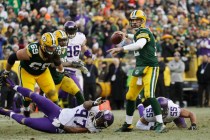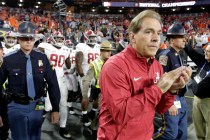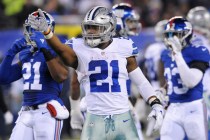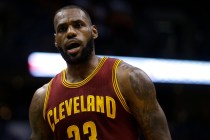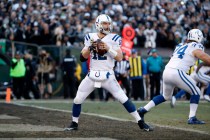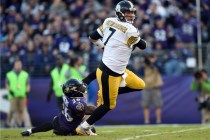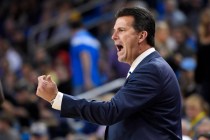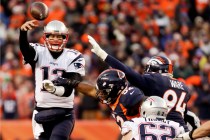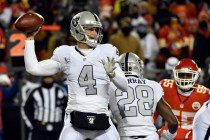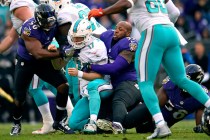Scrutiny sure to grow on daily fantasy sports
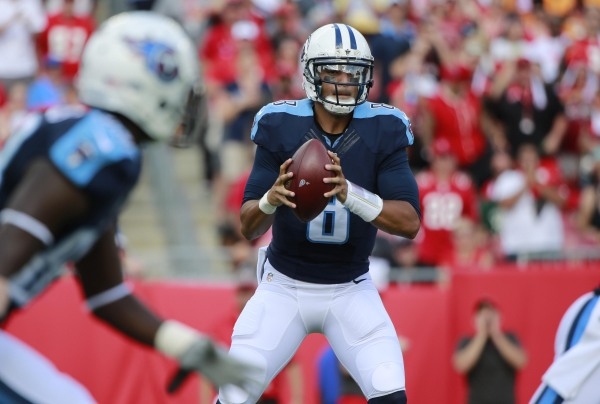
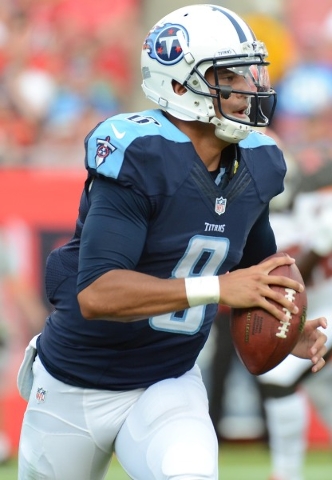
At halftime of Marcus Mariota’s first NFL game, the Tennessee Titans were looking pretty good for picking him No. 2 in the draft. The rookie had passed for four touchdowns, and the game already was a rout.
Bettors who took the Titans as 3-point underdogs Sunday against Tampa Bay were feeling good, too. Tennessee led 35-7 on the way to a 42-14 victory.
And, of course, the amatuer general managers who gambled on Mariota by drafting him as their quarterback were probably dreaming of big paydays via DraftKings, FanDuel, Yahoo or another of the many fantasy sports websites.
For decades, betting has driven the popularity of the NFL, a league that has forcefully opposed betting. The new reality is betting has company in the form of the booming fantasy sports industry, which is doing its part to help drive the popularity of the NFL while the league enthusiastically promotes it as a business partner.
“It looks a lot like sports betting,” Michael “Roxy” Roxborough, a longtime Las Vegas oddsmaker, said of fantasy football.
Betting and fantasy resemble each other as closely as twin sisters, yet the law says they are as different as a brunette and a redhead. The law smiles on Mary Ann and frowns upon Ginger. So, this is the gray area where money, politics and sports collide and things get confusing.
Summing up the case: Sports betting is prohibited in all states but four — it is protected in Nevada — under the Professional and Amateur Sports Protection Act (PASPA) of 1992. In 2006, the Unlawful Internet Gambling Enforcement Act blackballed sports betting and online poker, yet allowed an exception for fantasy sports by defining them as a game of skill, not as a game of chance.
This is when it should be argued football handicapping requires as much or more skill than drafting a fantasy team. I am a proponent of both. This is not an attack ad on fantasy, rather more of a complaint that sports betting is relegated to some sort of leprosy island.
It’s also time to examine where the fantasy industry is headed, because it’s a fascinating topic in so many aspects. Fantasy leagues have been around since the 1980s, but only in the past year or two did the daily and weekly websites turn into monstrous businesses.
“Fantasy didn’t know it was a business until it was,” said Roxborough, who founded and ran Las Vegas Sports Consultants from 1982 to 1999. “You talk about crossing the line in the sand — every year they have pushed the game a little further — but there is no line.”
The NFL kicks sand in the face of bettors and Las Vegas sports books while simultaneously embracing fantasy gambling. (If you can wager $5 on a fantasy team with a chance to win $100,000, is it not gambling?) All four major pro leagues are partnered in some way with either DraftKings or FanDuel simply due to fantasy creating more interest in the games and revenue for the leagues. The TV networks are all-in on the frenzy.
DraftKings plastered billboards all over Major League Baseball parks across the country this summer. Floyd Mayweather Jr. had a FanDuel logo on his trunks in his fight against Manny Pacquiao at the MGM Grand Garden in May. Examples go on and on, and we will see more and more.
“The leagues have opposed gambling almost every way they could, yet the NFL and MLB think fantasy is great,” Roxborough said. “It’s a strange marriage where teams and leagues are data partners in a business. It drives viewership and drives people going to NFL.com and MLB.com to look for data and stats, and they have relationships with ESPN and Fox, so it all ties together.”
Investors are pumping hundreds of millions of dollars into DraftKings and FanDuel, companies now launching TV ad campaigns that a majority of viewers see as annoying and insufferable. Have you seen the annoying kid hoisting the giant check for $1 million? You probably have seen it countless times.
It was reported DraftKings was the nation’s No. 1 spender on TV ads last week. The ads are insufferable but effective. According to a New York Times story, fantasy sports games will generate around $2.6 billion in entry fees this year and grow to more than $14 billion by 2020.
It is estimated around 50 million people in the U.S. will play fantasy sports on the Internet this year. It also has been documented that neither DraftKings nor FanDuel is turning a profit yet.
“All of these places have been pumped up with a lot of venture money, and they have to acquire customers with this marketing,” Roxborough said. “Nobody is turning a profit on it, but I think it’s understandable because they have all that venture money, and the idea is to be the last man standing and acquire customers. The idea is to accumulate assets and then figure out how to monetize these customers.”
The target market is young, tech-savvy fans who spend money on their passion for sports. Fantasy sports wagering is illegal in Arizona, Iowa, Louisiana, Montana and Washington, and sports betting on single games is legal in only one state.
New Jersey’s attempts to legalize sports betting continue to get blocked. In August, the federal ban on all but four states (also including Delaware, Montana and Oregon) was upheld in a Philadelphia court. The NFL, often accused of hypocrisy, has led efforts to support the betting ban.
And you knew this fight was coming — a New Jersey lawmaker is now asking the House Energy and Commerce Committee to review the legal status of fantasy websites.
Las Vegas resident Paul Czuchra, author of the book “May the Odds Be With Us: Legal Segregation in America,” has threatened to contest PASPA in court.
Nevada sports books have lagged behind the technology world and are way behind the fantasy curve. But last week, for the first time, Wynn Las Vegas sports book director John Avello offered a “Fantasy Matchup Prop” for NFL Week 1. He posted two teams — each consisting of a quarterback, two running backs, two wide receivers, a tight end and kicker — with a point system used for judging the winning side. Bettors could wager on team “A” or team “B” with the price opening at minus-110 on each side. It’s a new concept that gained approval from the state’s Gaming Control Board.
“We had good business on it,” said Avello, who will post the Week 2 prop teams today. “There’s a market for it.”
Roxborough, who has homes in Las Vegas and Thailand, keeps an eye on the evolving gambling landscape around the globe. He predicts the fantasy sports industry is about to slide into a potentially uncomfortable spot under the political microscope.
“They managed to get enough opinions that fantasy is not gambling. If you get enough money or enough partners, you can make anything legal or get the law to look your way,” Roxborough said. “Everybody is heavily invested in it.
“I have no idea how it plays out. The one thing I’m certain about is fantasy will come under more financial scrutiny, and I think that will be coming.”
In the meantime, study the stats, ante up and draft your fantasy quarterback. I’ll use Drew Brees, who’s a much better option than Mariota this weekend.
Maybe your quarterback will pass for four touchdowns in the first half. Maybe you could be the next to hoist a giant check for $1 million in a TV commercial, although in reality that’s a long-shot dream.
* CLOSING NUMBERS — I played four ‘dogs and one favorite last week to go 5-0 against the spread and run my college football record to 9-1. I’ll admit to catching a few breaks, so the results have been better than the handicapping. Here are five plays for Saturday (home team in CAPS):
Georgia Tech (-2) over NOTRE DAME; Colorado (-3) over Colorado State; South Florida (+7) over MARYLAND; TEXAS (+7) over California; Stanford (+10) over SOUTHERN CALIFORNIA.
Las Vegas Review-Journal sports betting columnist Matt Youmans can be reached at myoumans@reviewjournal.com or 702-387-2907. He co-hosts “The Las Vegas Sportsline” weekdays at 2 p.m. on ESPN Radio (1100 AM). Follow him on Twitter: @mattyoumans247.




